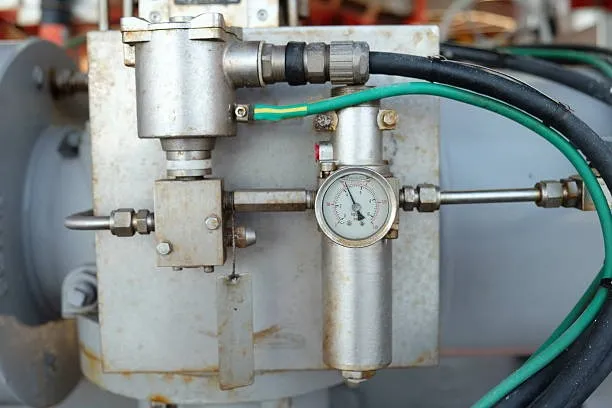
Boiler Replacement in Manheim, PA
Upgrading your boiler is one of the most impactful decisions you can make for comfort and energy savings in Manheim, PA. With cold Lancaster County winters and many older homes that rely on hydronic heating, a modern, correctly sized boiler delivers more consistent heat, lower fuel bills, and fewer emergency repairs.
When replacement is recommended
Consider replacing your boiler when one or more of the following apply:
- Age: Boilers older than 15 to 20 years often lose efficiency and become unreliable.
- Frequent repairs: Rising repair frequency or recurring issues like leaks, pressure loss, or noisy operation.
- Poor efficiency: Older cast-iron or non-condensing boilers typically have lower AFUE ratings and higher fuel costs.
- Uneven heat or slow recovery: Rooms that never reach set temperature or slow response after thermostat changes.
- Safety or code concerns: Persistent corrosion, cracked heat exchangers, or failed combustion safety checks.
- Conversion needs: Switching fuels (for example oil to natural gas or propane) or integrating with new domestic hot water demands.
In Manheim homes, seasonal freeze-thaw and older piping layouts can accelerate wear. Replacing an aging boiler before a harsh winter reduces the chance of mid-season failures.
Comparing high-efficiency models
Modern boilers fall into several categories. Key differences that matter for Manheim homeowners:
- Condensing boilers - Capture extra heat from flue gases for AFUEs typically above 90 percent. Best for maximizing fuel savings in cold climates.
- Modulating-condensing boilers - Adjust flame output to match demand, improving comfort and reducing cycling losses in variable winter conditions.
- Combi (combination) boilers - Provide space heating plus instant domestic hot water from a single compact unit. Good for homes with limited basement space and moderate hot water demand.
- Conventional non-condensing boilers - Less expensive up front but lower long-term efficiency.
When comparing models, look for AFUE rating, modulation range (how low the unit can run efficiently), warranty length, tiers of controls (outdoor reset, smart thermostats), and compatibility with your radiators, baseboard, or radiant floor system.
Unit sizing and load calculations
Proper sizing is critical. Oversized boilers short-cycle, increasing wear and lowering efficiency. Undersized units struggle on the coldest days. A professional heat loss calculation estimates your home’s required output based on:
- Square footage and layout
- Insulation levels and window quality
- Air infiltration and southern exposure
- Ceiling heights and floor types
- Local design temperature for Manheim winters
This calculation produces the required BTU/hr output. Technicians then select a model with appropriate modulating range and consider system piping, pump capacity, and any needed upgrades to distribution components.
Cost estimates and financing options
Exact costs vary by equipment type, system complexity, fuel type, and required modifications. Typical cost factors include:
- New boiler model and efficiency tier
- Labor for removal, installation, and any piping or venting changes
- Conversion work (fuel lines, oil tank abandonment, or gas line installation)
- Controls, pumps, and expansion tanks
- Permits and code compliance
Financing options are commonly available through third-party lenders or in-house financing programs to spread the investment over time. Local utility rebates or state incentives may reduce upfront cost for qualifying high-efficiency systems in Lancaster County. A certified technician will provide an itemized estimate and explain financing and rebate possibilities during the evaluation.
Removal and disposal of old equipment
Safe removal follows local code and environmental guidelines:
- Disconnect fuel and power, purge lines if required
- Drain and dispose of boiler fluids per regulations
- Remove and recycle metal components when possible
- Abandon or remove old oil tanks following DEP and local code, if applicable
- Restore the installation area and test for leaks and proper venting
Licensed professionals secure necessary permits and ensure proper venting arrangements, condensate disposal for condensing boilers, and safe handling of combustion byproducts.
Expected installation timeline
Timeline varies with scope:
- Simple like-for-like swap: often completed in 1 to 2 days.
- Mid-complexity (new venting, control upgrade, or combi install): 2 to 3 days.
- Complex retrofits (fuel conversion, significant piping rework, or multi-zone integration): several days to a week.
Pre-install evaluation, ordering of equipment, and permit approval influence total project time. Weather and parts lead times can also affect scheduling in peak seasons.
Warranties and long-term support
Warranties typically include:
- Manufacturer parts warranty (ranges vary by model and manufacturer)
- Optional extended parts and heat exchanger warranties for select models
- Labor warranty from the installing contractor for a defined period
Routine annual maintenance preserves warranty coverage and ensures your replacement delivers expected efficiency and reliability. Maintenance plans that include seasonal checks, combustion testing, and system flushing prolong equipment life and prevent costly breakdowns.
Long-term energy savings and value
Upgrading from a low-efficiency boiler to a modern condensing or modulating-condensing unit can significantly reduce fuel consumption. Savings depend on current system condition, fuel type, and usage patterns, but benefits include:
- Lower monthly fuel costs during Manheim winters
- Reduced carbon footprint from improved combustion efficiency
- Fewer emergency repairs and longer equipment life
- Better temperature control and increased comfort
- Potential increase in home resale value with documented efficient heating system
Combining a new boiler with proper insulation upgrades, programmable controls, and zoning can further improve comfort and reduce operating costs.
Preparing for replacement
Before replacement, gather available information: current boiler make, model, age, and any recent service records. Note specific comfort issues or hot water needs. During the evaluation, expect a licensed technician to perform a heat loss calculation, inspect distribution components, and discuss model options, installation logistics, permits, and warranty choices.
A correctly planned boiler replacement provides reliable warmth, predictable energy costs, and peace of mind for Manheim homeowners facing long winter months.


Enjoy flexible financing options that make upgrading or repairing your HVAC system easy and budget-friendly.










